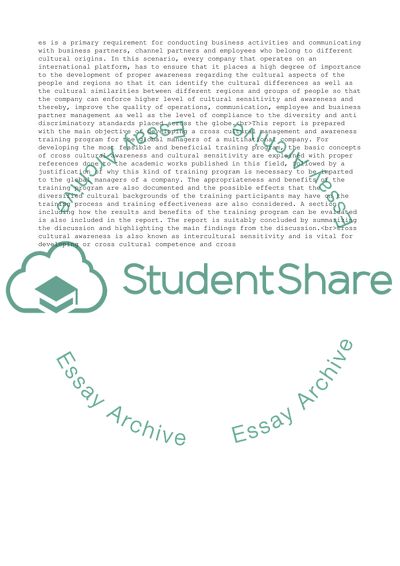Cite this document
(Cross-Cultural Management Essay Example | Topics and Well Written Essays - 2250 words, n.d.)
Cross-Cultural Management Essay Example | Topics and Well Written Essays - 2250 words. https://studentshare.org/management/1861891-cross-cultural-management
Cross-Cultural Management Essay Example | Topics and Well Written Essays - 2250 words. https://studentshare.org/management/1861891-cross-cultural-management
(Cross-Cultural Management Essay Example | Topics and Well Written Essays - 2250 Words)
Cross-Cultural Management Essay Example | Topics and Well Written Essays - 2250 Words. https://studentshare.org/management/1861891-cross-cultural-management.
Cross-Cultural Management Essay Example | Topics and Well Written Essays - 2250 Words. https://studentshare.org/management/1861891-cross-cultural-management.
“Cross-Cultural Management Essay Example | Topics and Well Written Essays - 2250 Words”. https://studentshare.org/management/1861891-cross-cultural-management.


